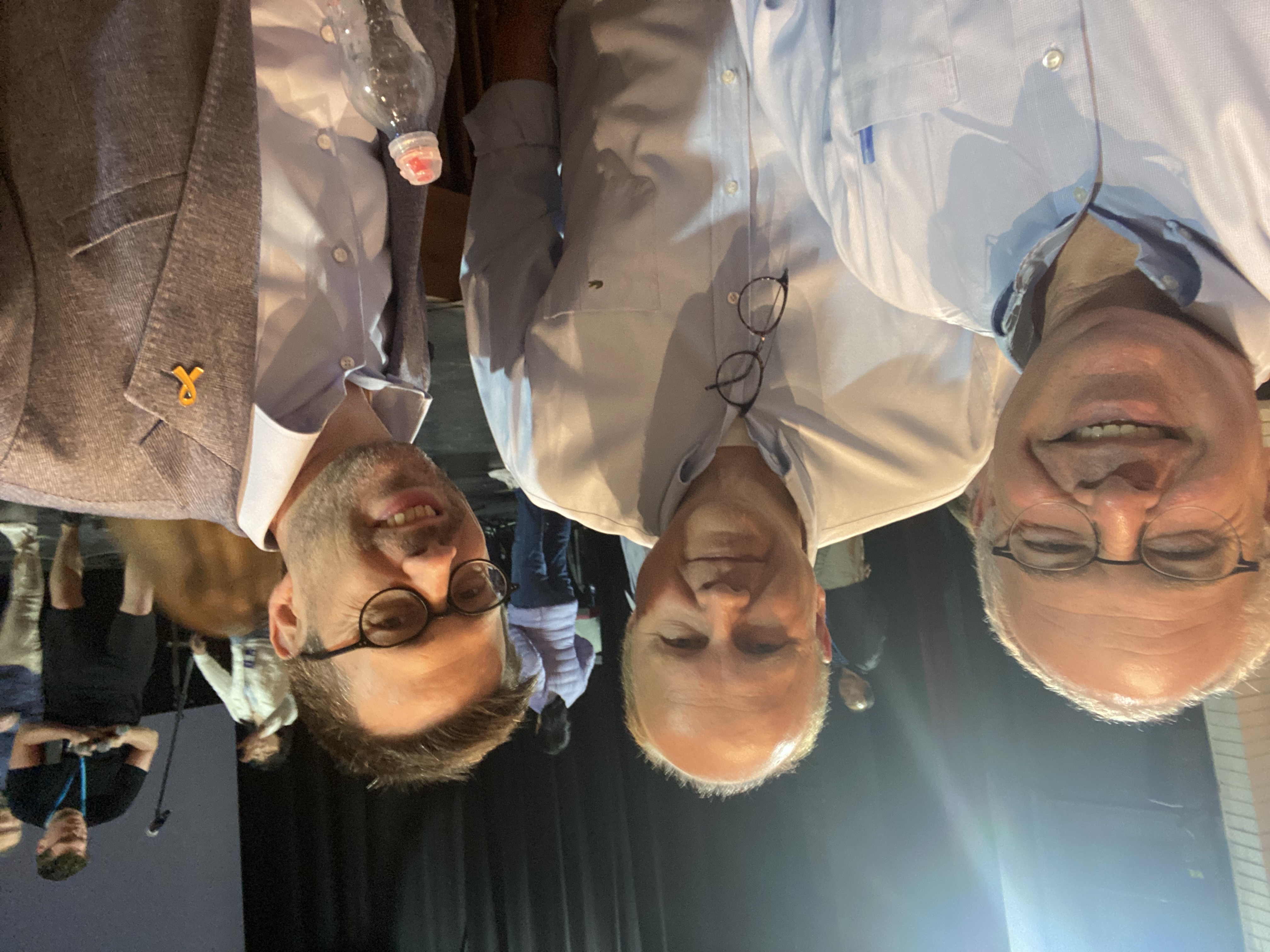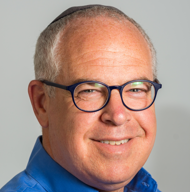Ten meters from Eichmann

There I stood, in Jerusalem’s Beit Ha’am theater, delivering remarks to hundreds of people gathered from some two dozen countries at the opening session of “March of the Nations.” I stood ten meters from where Adolf Eichmann stood trial in 1961, behind bulletproof glass, and where he was sentenced. 62 years ago this week, Eichmann was executed, for actual genocide and crimes against humanity, unlike the conflated obscene charges brought against Israel today.
The “March of the Nations” was a redemptive respite we all needed. In the middle of a war, with Israel’s enemies rising from Gaza, Lebanon, Yemen, and Iran, to the Ivy League, and everywhere in between, having Christian friends in Jerusalem to stand with us is a huge encouragement and comfort. The only shame is that it was not broadcast to Israeli national TV, or released as a video with Hebrew subtitles, yet, to show Israel that we do still have friends around the world. Good friends.
The “March of the Nations” and its sister international program, the “March of Life” which takes place around the world, is the brainchild and passion of Pastor Jobst Bittner in Tübingen, Germany. When I met Pastor Jobst on my first visit to Germany this past September, I was uneasy. Not because of him or the many other Christian friends of Israel and the Jewish people I was meeting. But because as an Ashkenazi Jew, many of whose relatives were murdered in the Holocaust, it’s hard NOT to go to Germany and be uncomfortable. I left Germany hopeful, and inspired.
Two weeks later, Israel suffered the unspeakable inhuman massacre of October 7. If ever we needed friends, that was the time. But since then, we have seen the list of allies and actual friends we can trust grow shorter and shorter.
That made the mandate of “March of the Nations” all the more significant, all the more so this year. Pastor Jobst knew it and delivered rousing and inspiring remarks to his mostly Christian audience about what it means to stand with Israel and the Jewish people, especially now, and especially in that room. Ten meters from where Eichmann sat, stone-faced and unrepentant.
His words transported me out from among the trees, engrossed in the individual and national grief and trauma that we are still experiencing, to look at the forest. He framed the massacre of October 7 and subsequent attacks on Israel and the Jewish people correctly as a spiritual battle, and to demonstrate tremendous comfort and hope coming to us from friends in all places, such as Germany. It was solidarity on steroids.
A dramatic reading of Psalm 110 was followed by a beautiful dance by young Germans, along with music, inspired by the same scripture. Ten meters from Eichmann.

Pastor Jobst preached to the hundreds assembled, but should have been preaching to all of Israel. He noted that the very auditorium in which we sat was a place of judgment, and of pain, where sin and guilt were covered up. Nobody in that hall, from 1961 until that night, had ever repented of the sins of the Nazis. That night, Pastor Jobst was changing the course.
Pastor Jobst hit a nerve, stating something I have long felt, but putting it into better words. Efforts to educate against antisemitism are nice and important, but the battle is not historical but spiritual. No book, no movie, and no commemoration can truly turn the tide on antisemitism. Therefore, the battle against it must be spiritual, to change hearts.
As descendants of the perpetrators, literally many of whose parents and grandparents were Nazis responsible for unspeakable crimes, he challenged those present to repent. Psalm 110 (ESV) was his proof text and playbook.
1 The Lord says to my Lord: “Sit at my right hand, until I make your enemies your footstool.”
2 The Lord sends forth from Zion your mighty scepter. Rule in the midst of your enemies!
3 Your people will offer themselves freely on the day of your power, in holy garments; from the womb of the morning, the dew of your youth will be yours.
4 The Lord has sworn and will not change his mind, “You are a priest forever after the order of Melchizedek.”
5 The Lord is at your right hand; he will shatter kings on the day of his wrath.
6 He will execute judgment among the nations, filling them with corpses; he will shatter chiefs over the wide earth.
7 He will drink from the brook by the way; therefore he will lift up his head.
In Beit Ha’am, the Hall of the People, Pastor Jobst drew a distinction between the Jewish people, the “Am,” and the Gentiles, the nations, the “Goyim.” Nobody who would hear his words that night could ever think of, much less use, the term goyim in a pejorative way. He called upon the church to end its cursing of Israel through passivity, inactivity, silence, and holding Israel in low esteem. Indeed, Pastor Jobst said that most churches, even ones which affirm support for Israel, are guilty of this. He called it the veil of silence, which must be lifted.
While justice, and Eichmann, may have been executed in 1961-62, that was not enough. There had never been repentance.
Pastor Jobst asked forgiveness that they had lived in the same way, silent and passive. He said they were guilty of considering themselves the victims. He prayed that God would crush the enemies of Israel. He asked his church, those present, to seek forgiveness and repent personally as well.
Then, spontaneously, dozens of people filled nearly every square meter in the aisles and along the front of the theater, prostate, on their hands and knees. Not just praying, but repenting. Their repentance became sobbing, and then uncontrollable tears. When the aisles became too crowded, several young people went up to the stage and knelt and cried. They prostrated themselves not ten meters from where Eichmann sat, but what would have been in his face. Their cries were the loudest, as if to say, "We – those who are closest to where the man who personified such evil from our past sat in stone-faced denial of guilt – we will redeem this space with our voices rising to heaven, through a river of tears."
For several long minutes, or more, the only thing audible in the whole theater was crying. I choked back tears more than once, witnessing all this, feeling compelled to comfort the people to whom I had delivered opening remarks an hour earlier.
I had concluded my remarks: “By being here, by marching here, you affirm that your past is not your present or future. And that our future is together. I pray that countless Israelis and Jews around the world will see today what you represent as we stand together, walk together, and build a future together. And I pray that countless Christians will see the same, and join you.”
May it be so.

Jonathan Feldstein was born and educated in the U.S. and immigrated to Israel in 2004. He is married and the father of six. Throughout his life and career, he has become a respected bridge between Jews and Christians and serves as president of the Genesis 123 Foundation. He writes regularly on major Christian websites about Israel and shares experiences of living as an Orthodox Jew in Israel. He is host of the popular Inspiration from Zion podcast. He can be reached at firstpersonisrael@gmail.com.













